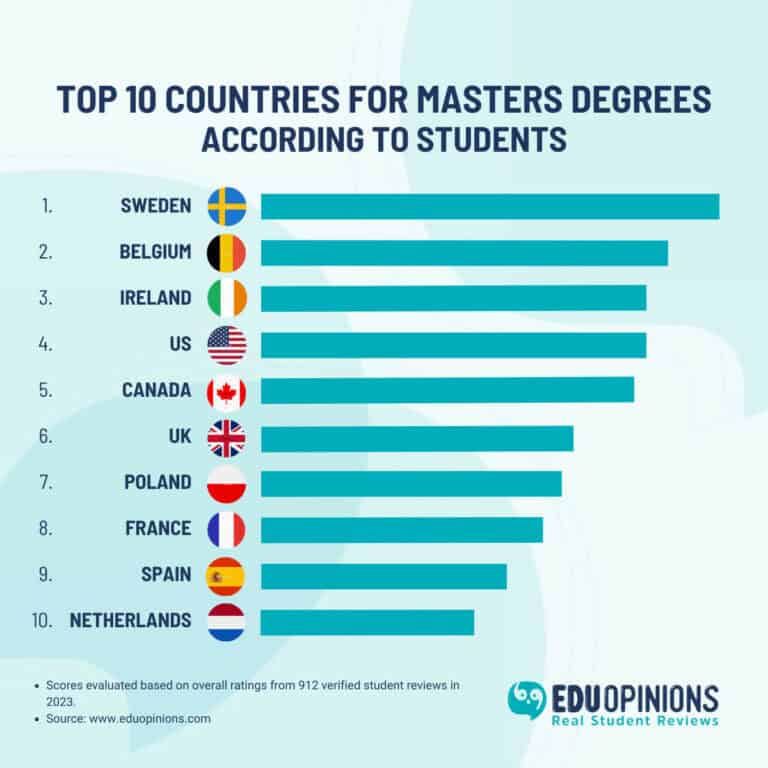Artificial intelligence is changing businesses left and right. As a student, you probably think the technological innovation won’t matter to you just yet – but you’d be wrong. There are lots of advantages to students of embracing AI early, including improving your productivity while you’re studying. So, we’ve dived into the growing world of AI tools to find out the best AI tools for students.
All of these tools would make a great addition to your study arsenal, allowing you to spend less time managing your studies and more time actually diving into the topics you love.
What are AI Tools?

AI tools are, quite simply, any piece of software that uses artificial intelligence to conduct certain tasks. Forget the image of a talking robot: these are programs that can make a genuine difference to how effectively you work.
Many of these tools use something called generative AI, which is any AI tool that can produce its own content. This could be anything from text to audio and imagery. For many programs that use generative AI, humans provide something called a ‘prompt’ to help the AI give them what they need.
AI tools can be used for lots of different tasks. The most popular tool that you might have heard of is ChatGPT, which acts as a chatbot to help propose solutions to problems or find specific information on the internet.
For our list, we’ve stayed away from ChatGPT, and brought you five other tools that are great for improving your productivity whether you’re still at secondary school or heading into university or higher education.
Top 5 AI Tools for Students

1. Otter.AI

If you find yourself struggling to keep up with your notes in lectures, then Otter.ai can help. This clever transcription program turns audio into accurate transcriptions, so you can worry less about making notes and more on engaging with your lectures.
It can also summarise your meetings, picking out the main topics which will make it easier to organise your notes later on. You could even use this feature to plan revision around relevant topics mentioned by your professors.
Otter is free, but has limits. You can use it for up to 300 transcription minutes per month, and each transcription has a maximum length of 30 minutes.
2. Notion

Maybe you’re already using Notion’s note-taking tools to organise your studies. The software has taken off among students who want to get super-organised for their studies. It’ll help you organise notes for classes with in-built notebooks, track deadlines for projects, and collaborate more easily during group work.
However, Notion’s AI feature has the ability to take your studies even further. At US$10 a month, it’s the cost of a few coffees, but has lots of capabilities. For example, the AI can create summarised notes of your lectures and modules, help your brainstorm ideas for essays or other projects, and help improve your essays with spellchecking and editing tone of voice.
3. Grammarly

If you don’t already use Grammarly, then it’s time to get it. The free version of the software helps solve any of those easily-missed mistakes in your essays, ensuring you’re only sending the best to your professors.
However, the new AI writing assistance takes it one step further. If you’re struggling with phrasing, it will create new versions of your essays that improve your wording, and it’ll give you ideas to start projects you’re struggling with. And, as it’s already implemented in Grammarly, you can use elements of the AI Assistant with a basic subscription.
4. Mem

For more powerful note-taking, Mem is the right program for you – and you can open an account for free, though with some limited access and file saving. Mem helps you organise disparate notes and links, and can then bring the information together in concise ways for you.
So, if you’re planning an essay, you can brain-dump on Mem, with the intention of going back to it later to get it organised. It’ll even grab notes from other apps including Evernote and Notion so all of your knowledge is in one place. Then, you can ask it question about the notes you have, or ask it to write a piece of content for you based on the notes it’s collected. It’s a genius way to make essay writing easier, and better sort through all of your study notes.
5. SlidesGo

It can be really stressful when your professor suddenly springs a presentation on you with just one week to prepare. With Slidesgo, though, you can create a smart presentation in no time. With Slidesgo’s AI feature, you can give the program a knowledge prompt (say, ‘solutions to climate change’) and it will create a presentation filled with pictures and text.
This is a great way to get a first draft complete without all of the time-consuming research and fiddling around with a presentation program like PowerPoint. It’ll split your topic up into bite-sized slides, allowing you to go through them and easily add any extra information you’ve got from your own notes.
Conclusion
AI tools can make our lives much easier by taking care of time-consuming tasks and allowing us to focus more on the complex aspects of studying. They can help you organise your time, make your writing better, and produce more effective notes, improving your chances of success in the classroom.
As with any creative technology, it’s really important to proofread whatever AI creates. Like humans, it can make mistakes, so you should be checking everything it creates for mistakes. And, if you’re starting to use AI tools, your teachers definitely are, too. AI plagiarism tools can check if AI has been used to create content, so think again before submitting that 100% ChatGPT-produced essay!
Are you interested in studying artificial intelligence at university? The sector is growing at a rapid rate, meaning there are now lots of roles available for graduates interested in this fascinating, and fast-progressing, technology. Here are the best universities for studying artificial intelligence.
Recent Posts

Suppose you know that you want to study abroad for your Masters degree, but you're not sure where exactly to go. There are so many great ...

Today, it's not enough for a business degree to teach students about the fundamentals of traditional business. Instead, business programmes must ...

University can be an exhilarating experience. But amid all the excitement of meeting new people and gaining freedom, many students find themselves ...







